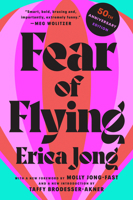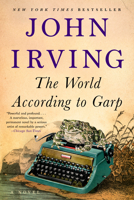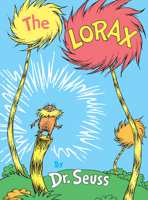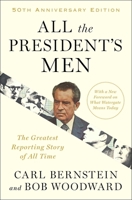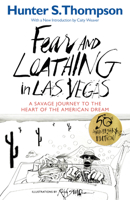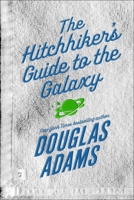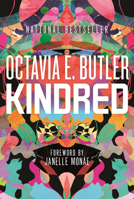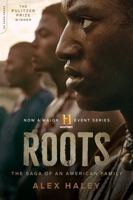Can You Dig It? 11 Books that Summon the '70s
By Ashly Moore Sheldon • August 07, 2020
What is it about revisiting the past that is so comforting during times of strife? Perhaps it is the benefit of perspective. The 1970s were, in many ways, a decade of upheaval, uncomfortable and messy feeling at the time. Yet looking back, we can see, not only the factors leading up to this turmoil, but also the progress that was made. Here are eleven books that are representative of the era.
Let's Get Groovy
The decade was marked by vastly changing social norms. It was a climate of change leading to widespread experimentation in sexuality, drugs, art, and activism. This culture of flux and newfound freedom was amplified by the literature of the era.
By Erica Jong, Fear of Flying is the groundbreaking, uninhibited story of Isadora Wing, a married poet who embarks on a journey of sexual freedom. The book caused a national sensation, selling more than twelve million copies. Nearly 50 years later, it still stands as a tale of self-discovery, liberation, and womanhood.
The World According to Garp by John Irving traces the path of T. S. Garp, the bastard son of Jenny Fields, a feminist leader ahead of her time. It is a world rich with lunacy and sorrow, yet the dark violence of the story doesn't undermine Irving's buoyant sense of comedy, both ribald and robust.
Peace Out
The hippie culture of the decade espoused pacifism, social justice, and environmental responsibility. Despite the appearance of freedom and abandon, there was an undercurrent of principled intention—a movement to change the world for the better.
I am the Lorax. I speak for the trees. Dr. Seuss's beloved story implores young readers to speak up and stand up for those who can't. Published in 1971, The Lorax sounded the alarm on the dangers of taking our earth for granted, while still infused with the author's trademark qualities of playfulness and optimism.
A father and son take a summer motorcycle trip in Zen and the Art of Motorcycle Maintenance by Robert M. Pirsig. The trip becomes a personal and philosophical odyssey into fundamental questions on how to live; the craft of motorcycle maintenance comes to represent an austerely beautiful reconciliation of science, religion, and humanism.
Here's the Skinny
The political landscape of the '70s was marked by defiance of authority in the interest of change. All of this rambunctious, revolutionary energy ushered in a new era for journalism.
It begins with the story of a simple burglary at Democratic headquarters, growing with intensity as it moves through headline after headline. With All the President's Men, Carl Bernstein and Bob Woodward deliver a riveting account of their explosive reporting, which won a Pulitzer Prize, toppled a presidency, and inspired generations of journalists.
Fear and Loathing In Las Vegas provided a view into the drug culture of the era and heralded the creation of gonzo journalism, a subjective blend of fact and fiction. Hunter S. Thompson's autobiographical story follows his protagonist on a drug-fueled trip to Las Vegas, as he ruminates on the failures of the 1960s counterculture movement.
Far Out!
Sci-fi and space travel loomed large in 70s pop culture. It was the decade of Star Wars and Close Encounters of the Third Kind. Spaceships blasted off on album covers for bands like Boston and Electric Light Orchestra. And the era was marked by some seriously space-y stories.
In The Hitchhiker's Guide to the Galaxy, Douglas Adams presents hapless hero Arthur Dent traveling the galaxy with his intrepid pal Ford Prefect. At once, both funny and thought provoking, this story originated as a BBC radio show and has been adapted into a variety of other formats including stage shows, a television series, and a video game.
For a more serious take on futuristic space travel, Ursula K. Le Guin's The Dispossessed follows the story of Shevek, a brilliant physicist who risks everything to try and mend the divisions in his otherworldly utopian planetary civilization. This novel is part of the seven-book Hainish Cycle series.
Black and Proud
As the Black Power movement of the late 1960s gathered momentum, it fed into a new Black renaissance in music, art, and literature. The push for better Black representation in pop culture is ongoing, but the progress made during this decade was exciting.
Octavia Butler's Kindred pulls us—along with her modern Black female hero—through time to face the horrors of slavery and explore the impacts of racism, sexism, and white supremacy. Dana, a 26-year-old black woman, is snatched abruptly from her 1970s home in California and transported to the antebellum South.
It begins with a birth in an African village in 1750; it ends seven generations later at the Arkansas funeral of a Black professor whose children are a teacher, a Navy architect, an assistant director of the U.S. Information Agency, and an author. The author is Alex Haley. Roots is his opus.
With Song of Solomon, Toni Morrison transfigures the coming-of-age story, tracing the story of Milkman from his rustbelt city to the locale of his family's origins. Morrison introduces an entire cast of strivers and seeresses, liars and assassins, the inhabitants of a fully realized Black world.
Catch you on the Flip-Side
This little flashback to the groovy '70s has us digging out our bellbottoms and tie-dyes. Even though it was a time of massive tumult and change, it can seem relatively peaceful looking back. Here's hoping we will eventually have this kind of perspective on our current times.
For daily book recommendations, literary tidbits, and more, follow us on Facebook, Twitter, and Instagram.











